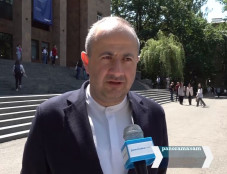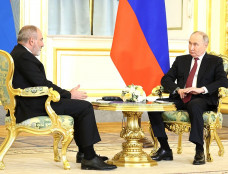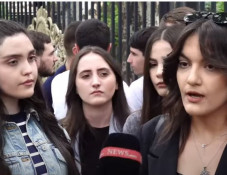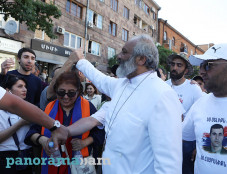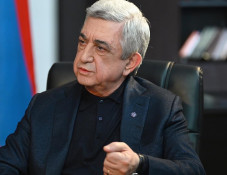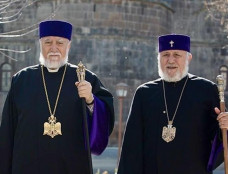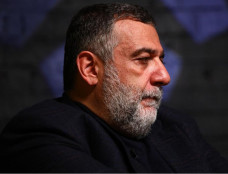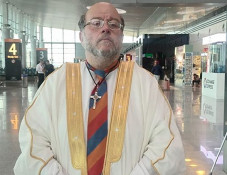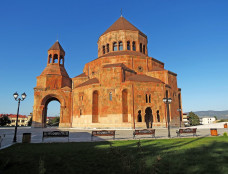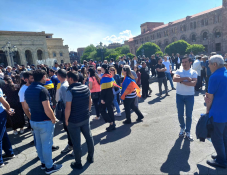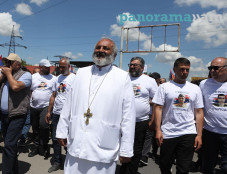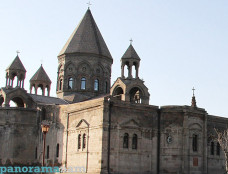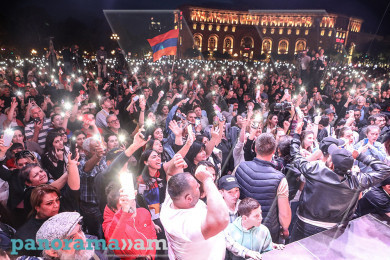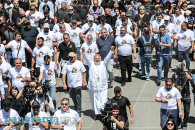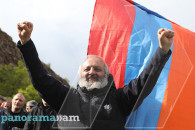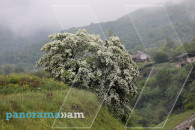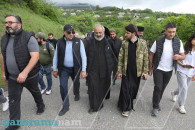
Pakistan breaks with tradition in Afghan election
Pakistan has turned into one of the main topics of discussion in the Afghan election. The issue of the Taliban seeking refuge in Pakistan and Islamabad’s political games during the past 13 years have enraged a great number of Afghans. It is for this reason that all of the candidates present in the Afghan election have used criticism of Pakistan as one of their main campaign slogans. Iranian Diplomacy recently spoke with Ahmed Rashid, a Pakistani journalist and best-selling foreign policy author of several books about Afghanistan, Pakistan, and Central Asia, about this issue and other issues surrounding the Afghan election.
- Which candidates in the Afghan elections are, in your opinion, supported by Pakistan?
- I think for the first time in its history, which is very unusual, Pakistan is not supporting any candidate. I don’t see Pakistan having a favorite amongst the three top candidates. There’s enormous antagonism against Pakistan in all the three candidates. Usually it’s only the non-Pashtun Tajik candidate who shows a very aggressive attitude to Pakistan, but this time even the Pashtun candidates have been very critical of Pakistani interference and, in their campaign, have talked about Pakistani interference, and clearly, even amongst the Pashtuns, there is a lot of anger and dislike for Pakistan’s policy. So I think it’s been very wise of the military and the intelligence here to actually keep a very low profile in this election, not to become an issue, not to support any one single candidate, which would make Pakistan even more controversial, especially amongst the Pashtuns in Afghanistan.
- During the 13 years of Hamed Karzai’s presidency, Pakistan and Afghanistan experienced a period of serious tensions. Did the positions taken by Karzai himself influence these tensions or was there another reason behind them?
- I think both Pakistan and Afghanistan are to blame, but I think predominantly Pakistan, because there is no doubt that the Taliban leadership is living in Pakistan, they are operating from here, their logistics are based here, and Karzai has frequently expressed enormous frustration at the fact that Pakistan is not doing more to either bring them to the negotiating table or to throw them out. And on the other hand, as far as Pakistan is concerned, Karzai has always blown hot and cold. There has never been a very consistent policy from the Afghans towards Pakistan. So one day he’s very aggressive, the next day he’s wanting to negotiate about how to talk to the Taliban. So I think both sides have had a very insecure and a very rocky relationship.
- What are the roots of differences between the two countries?
- I think the roots go back a very long way. They go back to the 1970s, when the Pakistani Intelligence, under Zulfikar Ali Bhutto, convinced some Afghan Islamists to come and get training. The fact is that Pakistan has been using Afghans for its own policy ends for the last 55 years. Of course, this reached a height during the Soviet occupation of Afghanistan when Pakistan and the CIA were helping to arm the Mujahideen and choosing favorites among those Mujahideen who were mostly Islamic extremists. And then of course in the civil war in the 90s when Pakistan backed the Taliban and Iran and India and Central Asia all backed the Northern Alliance. So, it’s a very long history.
- In your opinion, what mistakes has the US made in Afghanistan during these 13 years?
- Unfortunately, the US has made huge mistakes. I think the primary mistake was to attack Iraq which was a distraction from the mission in Afghanistan. In the initial phase, when there was no war, when there was no resurgence of the Taliban, they were never able to put sufficient money and forces and development into the country because of Iraq. And after that, I think Afghanistan has always been a kind of holding operation for the Americans, it’s never really been a primary objective. Iraq was a primary objective; Afghanistan was always a secondary objective. Nevertheless, they spent enormous amounts of money – 1 trillion dollars has spent in the last 14 years – and frankly the results are very uncertain. We don’t know if the Taliban are going to return, if they’re going to be able to now retake territory, if the social programs the Americans started, like in education and health, will continue. These are all big questions marks.
- What are the weaknesses of the US' strategies with regard to Pakistan?
- I think what the Afghans say, there’s an element of truth to that; that the Americans did not push Pakistan strongly enough to deal with the Afghan Taliban problem, and to either throw them out or to engage them in some dialogue with Kabul. Now, for a long time, remember the Americans were not in favor of dialogue. And even when they became in favor of dialogue with the Taliban in 2008-2009, the US administration was actually quite divided on this issue. They didn’t have a common position. Anyway, I feel that there’s a great deal of bitterness between the Americans and the Afghans and the Pakistanis. The Americans tend to blame their failures in Afghanistan on Pakistan. Now I don’t think that that’s exactly correct. I think the Americans had many failures which had nothing to do with Pakistan. But nevertheless, there is this tendency of the Americans to not blame themselves but to blame others.
- Will the Afghan Taliban change their strategy after the withdrawal of US forces from this country?
- We did have this period of talks between the Americans and the Taliban in 2010-2011 which unfortunately broke down. I do hope that once the Americans withdraw, the Taliban will start serious negotiations with the government of Afghanistan. I think that’s a real possibility. And I hope that Pakistan will do everything it can to encourage that.
- Does the Taliban look to gain complete dominance in Afghanistan or can division of power and limitation to a few regions be considered as their political ideal?
- I think there is a peace lobby in the Taliban. I won’t describe them as moderates and extremists but I think there is a peace lobby, and this lobby is made up largely of the original Afghan Shura who are close to Mullah Omar who realize they are not in a position to conquer Afghanistan again, they are not in a position to govern Afghanistan, and it would be much better if they found some modus operandi, some compromise with the government, whereby they could maybe play a role in government, or share power in some of those provinces where they have a lot of influence and control. I’m hoping and I’m very hopeful that there will be more attempts now to compromise because there is a new president, they should not have the problems that they had with President Karzai; after all, he is no longer president. So let’s see what happens.
- What can the next Afghan president offer to the Taliban to actually make or persuade them to engage in peace talks?
- I think the effort should be how to find a solution to end the civil war. I think that the dialogue between the two sides should revolve around how they can end the civil war, how they can honorably bring back those Afghans who are living in Pakistan and need to come back, especially the refugees, the leadership of the Taliban, etc. So I think there are a lot of humanitarian and refugee issues and war issues which could be used to promote a peace dialogue.
- Do you think Nawaz Sharif will try to boost an Afghan settlement in the near future?
- I think Nawaz Sharif is bogged down at the moment with the Pakistani Taliban, and the policy he’s pursuing here is very confusing. Nobody quite really knows what he’s doing. And there’s a lot of controversy between the army, the politicians, and the government. So I think he’s pretty preoccupied. But I do hope that he and the government, the military, the intelligence, start putting pressure on the Afghan Taliban to open a dialogue with the new president once we have a new president in Kabul. I hope that will be the main thrust of the Pakistani policy which will be to push the Afghan Taliban into talks.
- What kind of a role do you consider for the ISI and the military in this field?
- Obviously, the ISI and the military have really run the policy on Afghanistan. So it is absolutely crucial that the ISI and the military and the civilian government all speak in one voice about the need for peace in Afghanistan. In the past, what has happened is that the government has pursued one policy and the ISI has undermined that policy and pursued another policy, which has led to chaos and a great deal of bitterness, both in Pakistan and in Afghanistan. I hope that there is one policy that is pursued and that all three pursue a joint policy of persuading the Afghan Taliban that now is the time to go home and negotiate with the president.
- What are the advantages and disadvantages of the US withdrawal for Pakistan?
- We have to see whether the US is going to leave behind a contingent of 10000 men and trainers and intelligence as they say they will, and if the Afghans will sign that deal. I think frankly the Pakistanis would have preferred that the Americans stayed on and had some control over the Afghan army and provided some back-up to the Afghan army, because when Pakistan does launch its offensive in North Waziristan against the Pakistani Taliban, it will want back-up from the Afghan side, preferably by the Americans, but the Americans won’t be there. In fact we should have done this offensive 6 months ago, a year ago, or 2 years ago when the Americans were there and they could have backed up any Pakistani offensive from this side. Now, unfortunately, you’ll be relying on the Afghan forces who are not that organized and maybe not so willing to help Pakistan deal with the issue in North Waziristan.
- What kind of a role do you suppose for Saudi Arabia in Afghanistan?
- I don’t think the Saudis are particularly interested in Afghanistan. I think they’ve been let down by Afghan leaders who’ve broken promises, who’ve promised peace, and have never delivered. I don’t think the Saudis want to get particularly involved. They will leave it to Pakistan and perhaps to some other states to be more active. The Saudis are not interested in playing a major mediating role.
- Even between the Taliban and Afghanistan?
- Yes. You remember Karzai has been asking the Saudis to play a role for the last 5-6 years, and the Saudis have always declined. There have been informal talks in Saudi Arabia, but Saudi Arabia has declined to play a formal role in any kind of negotiation. It may change its mind now with the new president, but at the moment it doesn’t seem so.
Newsfeed
Videos





